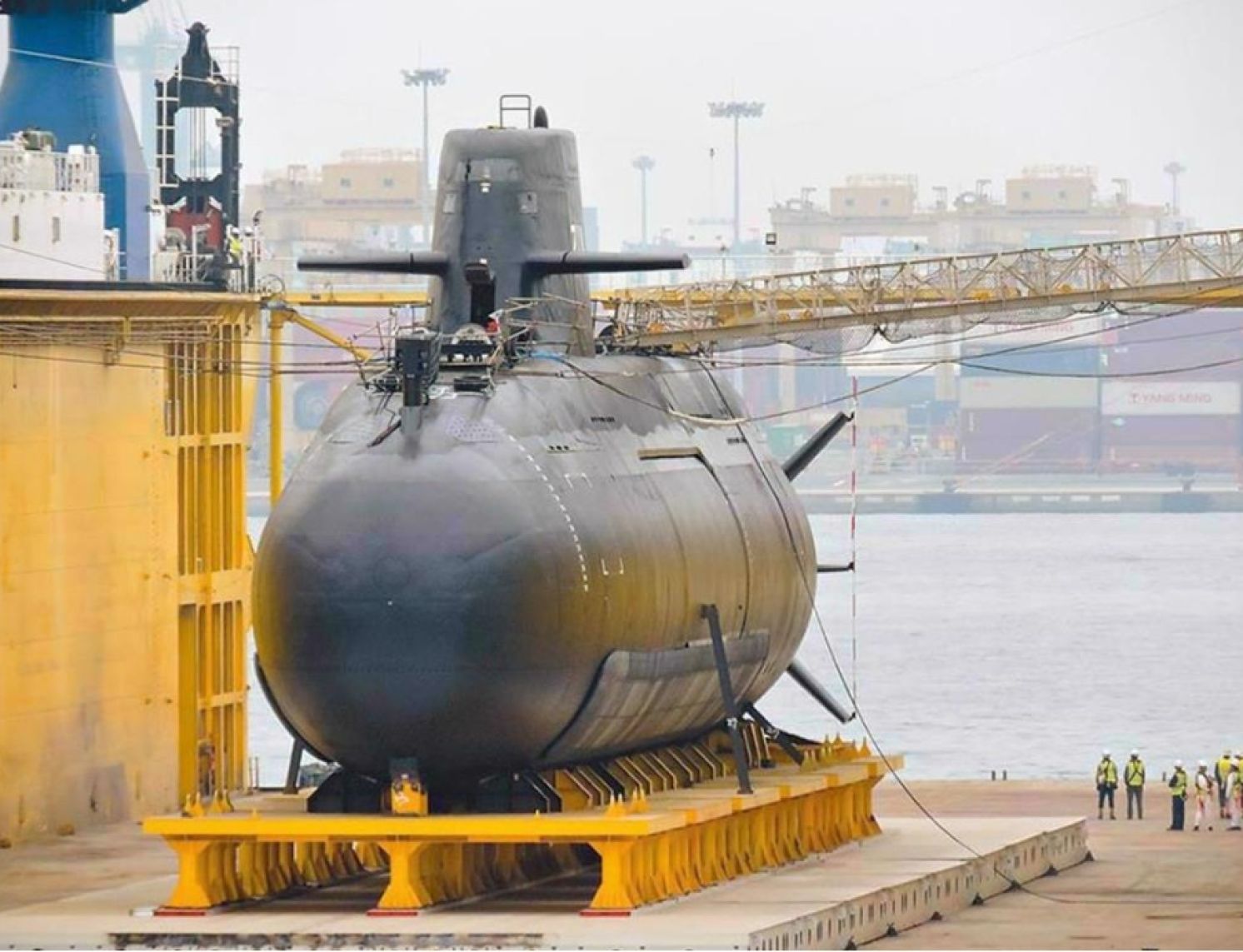
Hai Kun Submarine Project Delays Expose Deeper National Security Concerns
By Chen Kuan-an, China Times Opinion, October 21, 2025
If Taiwan truly intends to defend itself, then not a single dollar of its defense budget should be wasted. This principle ought to be a consensus among all political parties and administrations. Yet regrettably, over the past nine years, the Democratic Progressive Party (DPP) administration has, on one hand, waved the banner of “resisting China to protect Taiwan,” escalating the spiral of cross-strait hostility; while on the other hand, it has expanded the defense budget without effectively translating military spending into actual combat capability.
Recently, Minister of National Defense Wellington Koo admitted that the Hai Kun submarine would not be delivered on schedule, acknowledging that the original five-year timeline had been overly optimistic. His frank admission came two years after the vessel’s launch ceremony—long after the political credit had been claimed, the funds fully allocated, and the critics silenced or branded as traitors. The major delay in the Indigenous Defense Submarine (IDS) project once again proves that the DPP government prioritizes political publicity over military effectiveness—posing one of the greatest threats to Taiwan’s security.
The delay of the Hai Kun project is not merely a technical issue involving a single submarine, but a broader question of defense resource allocation. The Ministry of National Defense has budgeted more than NT$200 billion (about US$6.5 billion) for seven follow-up submarines. Given the current scale of Taiwan’s total defense budget, this project has become a “monster,” severely squeezing resources needed for other capabilities. Yet even before the Hai Kun has completed its land and sea trials—and before its true performance can be properly evaluated—the budget for additional submarines has already been rushed through. This raises a serious question: is the goal genuine combat capability, or political image-building?
Now even the DPP can no longer pretend. From ruling party lawmakers to the defense minister himself, officials are admitting that the Hai Kun’s delivery timeline was overly optimistic, saying the realistic schedule is between seven and 16 years. These admissions vindicate the opposition’s earlier skepticism about the submarine’s progress. But how did the DPP treat those skeptics at the time? They were not debated but ridiculed, suppressed, or even attacked by online trolls—some accused of leaking secrets or endangering national security. Now that the truth has surfaced, there has been neither apology nor accountability.
In fact, many of the DPP administration’s major military initiatives were announced abruptly, designed to create a false impression of “achievements.” In reality, most of these projects remain in testing stages and have yet to deliver real combat power. Former President Tsai Ing-wen reaped all the political dividends during her tenure, but left the risks, the bills, and the failures to her successor, President Lai Ching-te. From the Hai Kun delay and expanding solar energy scandals to energy policies that have jeopardized the stability of Taiwan’s power grid, the Lai administration is now paying off the “political debt” accumulated over the Tsai years.
The greatest danger in defense policy is not slowness, but disorder and deception. Taking time to get things right is no shame; hasty misjudgments are. If the Lai administration is sincere about addressing the issue, it must immediately review the Indigenous Defense Submarine program, restore military expertise to the core of decision-making, and eliminate political interference.
In face of potential crisis in the Taiwan Strait, strengthening national defense is indeed necessary—but it must never become an excuse for wasting taxpayers’ money. Raising the defense budget is a national consensus, but what the public demands is security, not political theater. When defense spending keeps rising without corresponding gains in capability—leaving only propaganda, cognitive warfare, and vanity projects—this is not defending Taiwan, but endangering it; not resisting China, but exploiting fear for profit.
The delay of the Hai Kun has sounded a warning bell for Taiwan. The real national security crisis does not come from external enemies, but from the arrogance and deceit within its own government. If the DPP remains unwilling to conduct an honest review, Taiwan’s defense will continue to be weaponized for electoral gain—leaving its people with nothing but empty promises between taxation and safety.
From: https://www.chinatimes.com/opinion/20251021004371-262104?chdtv